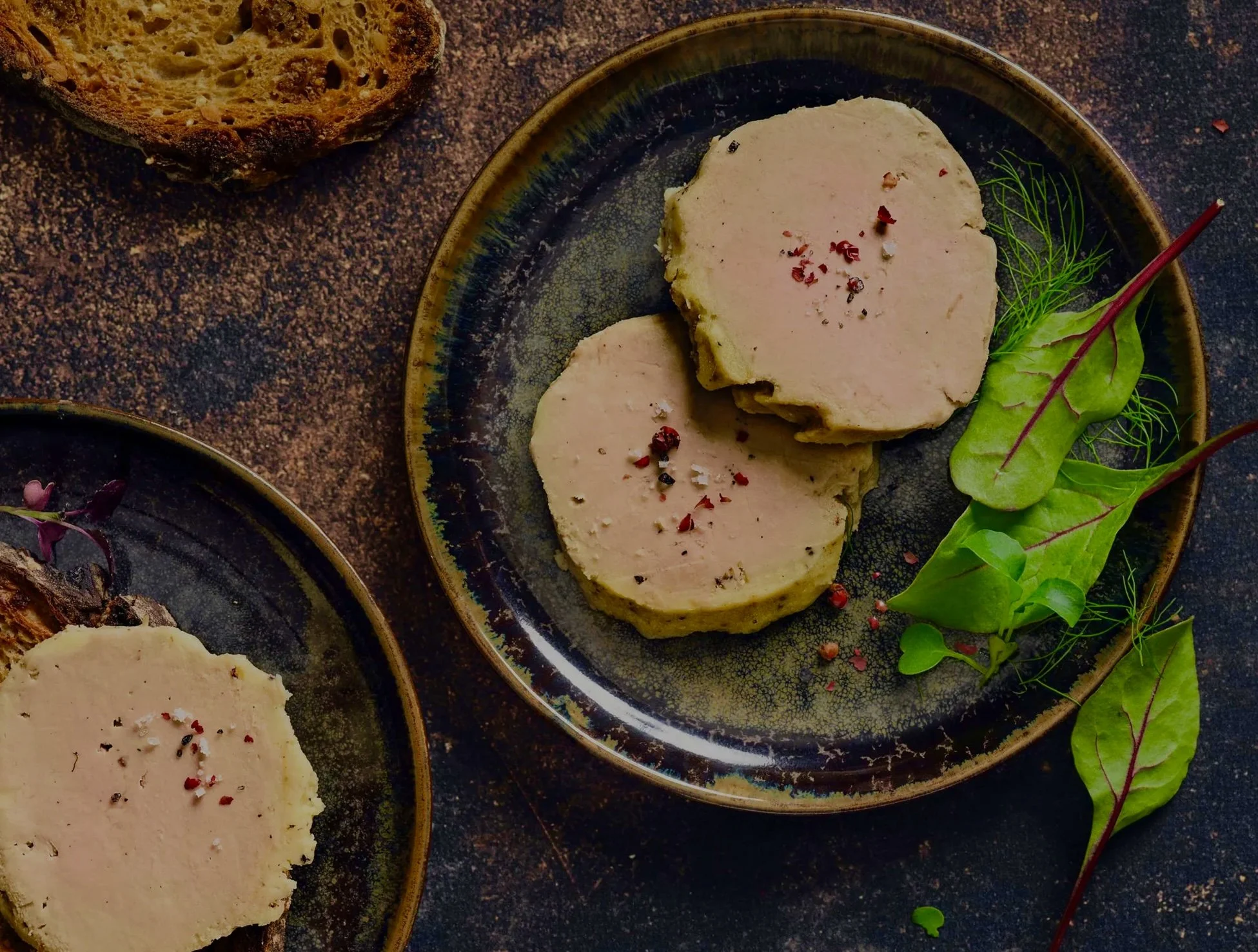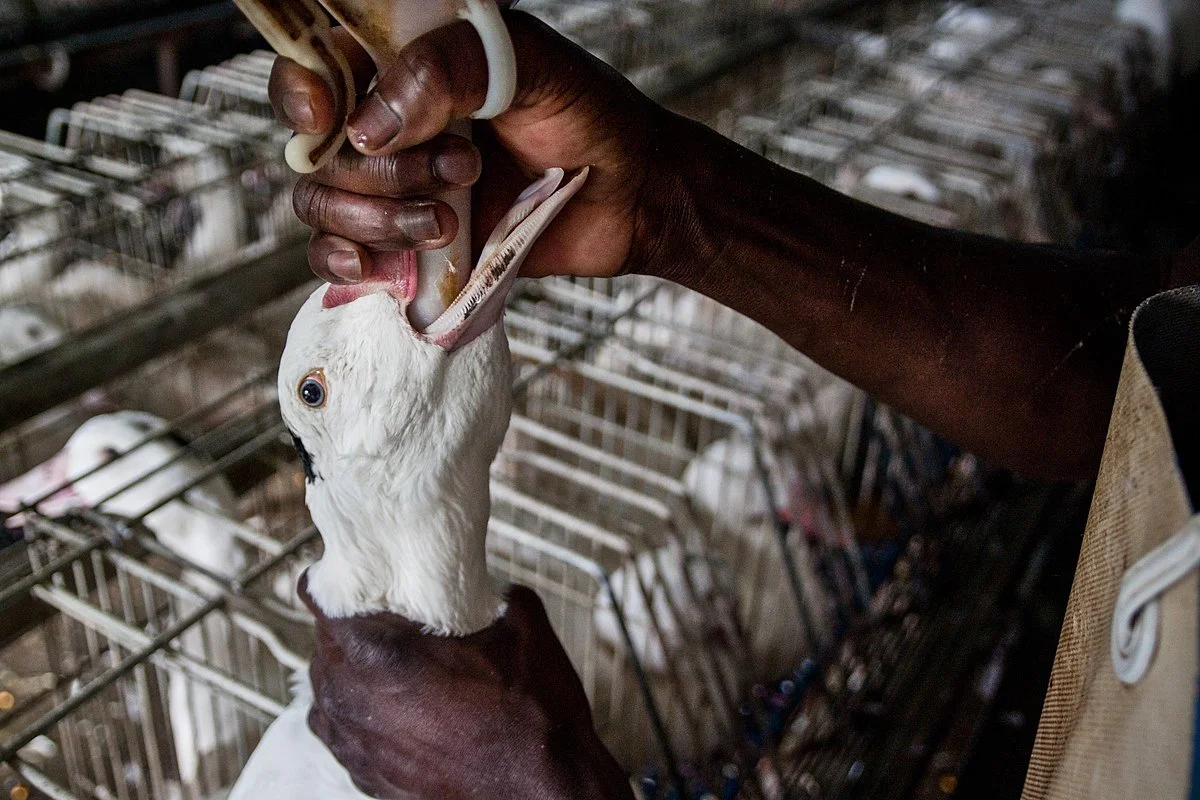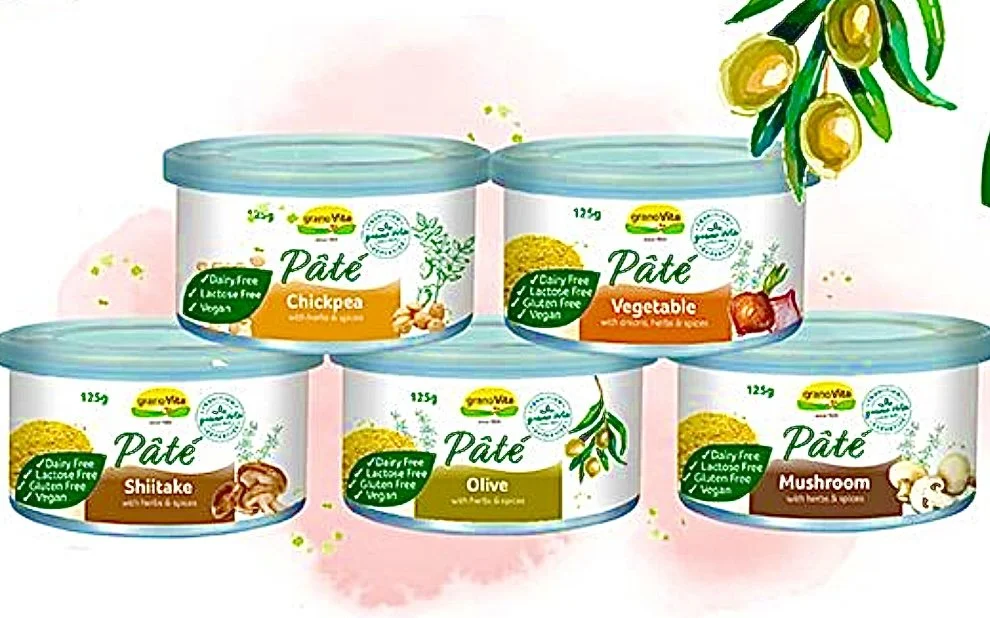“Delilah” was rescued from a foie gras farm as a gosling and has lived at an animal sanctuary in Quebec ever since. Photo: Jo-Anne McArthur, We Animals Media
By Jessica Scott-Reid
Jessica is a Canadian writer, animal advocate and plant-based food expert. Her work appears regularly in media across Canada and the US.
Of all animal-derived foods, perhaps the most controversial and debated in recent years has been the French delicacy foie gras, a rich pâté made from the fatty liver of ducks or geese. Consumed for centuries, the dish has come under scrutiny over the last two decades, due to significant concerns about serious animal welfare issues. So much so, that producing foie gras has been banned in some jurisdictions including Australia, the UK, the Netherlands, Germany, Sweden, Israel and California.
Other places, including New York City, have banned the local sale of the product. In the state of California, for example, foie gras cannot be sold in stores, and restaurants cannot sell or even give it away. (A recent attempt at a supreme court challenge to the California law, brought by Canadian and American farmers, was unsuccessful.) There have even been lawsuits against some producers and retailers, brought by groups such as the Animal Legal Defence Fund. Also, the Canadian Coalition for Farm Animals is currently running a campaign against force-feeding of animals in the foie gras industry in Canada. So what is it about this particular food that causes such concern? And where can foie gras-lovers turn for more ethical alternatives?
Alternatives to traditionally produced foie gras include this cell-cultured foie gras from French food tech start-up Gourmey. It is made from animal cells but without force feeding any ducks or geese. Photo: Gourmey
The controversy around foie gras stems from how it is traditionally produced, using a technique called gavage. This process involves force-feeding captive geese or ducks to encourage their livers to become enlarged and fatty. This is typically done by forcing a feeding tube down their esophagus and delivering a high-energy feed several times a day, usually a mixture of corn.
The force-feeding leads to the liver becoming larger and developing a rich texture and a distinctive flavour. The process also causes extreme physical discomfort, stress, and potential injury to the birds. So, although foie gras has long been widely enjoyed, as consumers discover the cruelty inherent in its production they are saying “no thanks'“ and are turning to other options. Animal advocates and some political leaders agree.
To produce the luxury food item foie gras, ducks and geese are force-fed to fatten their livers up to 10 times their natural size, as shown at this farm in Europe. Photo: Luis Tato, HIDDEN, We Animals Media
Beyond the obvious pain and stress caused by the excessive and rapid force-feeding in foie gras production, the enlarged liver (hepatomegaly), can cause difficulty in breathing, walking, and general discomfort. There is also great risk of other health problems in these animals, such as infections, esophageal damage, and organ dysfunction. To make matters worse, birds in foie gras production are often kept in intensive confinement in order to limit their movement. This lack of space restricts their natural behaviors and can contribute to even more stress and physical ailments.
Producing foie gras, including the conditions in which the birds are raised, is inherently inhumane and violates fundamental animal welfare principles. It is also simply unnecessary, thanks to a wide variety of available alternatives that offer similar taste and texture without all the harm. Commercially made products such as Alternative Kitchen’s pea-protein based pâté, or Granovita brand’s soy-based option, are rich, delicious and cruelty-free.
Tasty plant-based gourmet pâtés from UK company Granovita. Photo: Granovita
Spanish brand Hello Plant Food reportedly sold out of its new plant-based foie gras within a matter of hours earlier this year. There are also countless recipes available online for vegan “faux gras,” utilizing fat-rich nuts like cashews and walnuts, along with umami-strong ingredients like miso, mushrooms and nutritional yeast, added richness from coconut oil and tahini, and full flavour from truffle oil, herbs and/or cognac.
Further, The New York Times reported in 2021, on the mounting investment interest in cell-cultivated foie gras, which would produce the real-deal dish made without the animals and without the suffering. Since then, at least two companies have taken on the task, including France-based Gourmey, Japan-based IntegriCulture, with hopes of bringing the innovative product to market soon. The demand for foie gras alternatives is certainly there, and as even more consumers become enlightened about the cruel realties of foie gras production, that demand is sure to grow.
SIGN UP BELOW FOR OUR MONTHLY EMAIL WITH LINKS TO OUR LATEST BLOGS AND A REMINDER TO FOLLOW US ON SOCIAL MEDIA FOR WAYS TO HAVE A POSITIVE IMPACT ON LIFE ON OUR PLANET.




